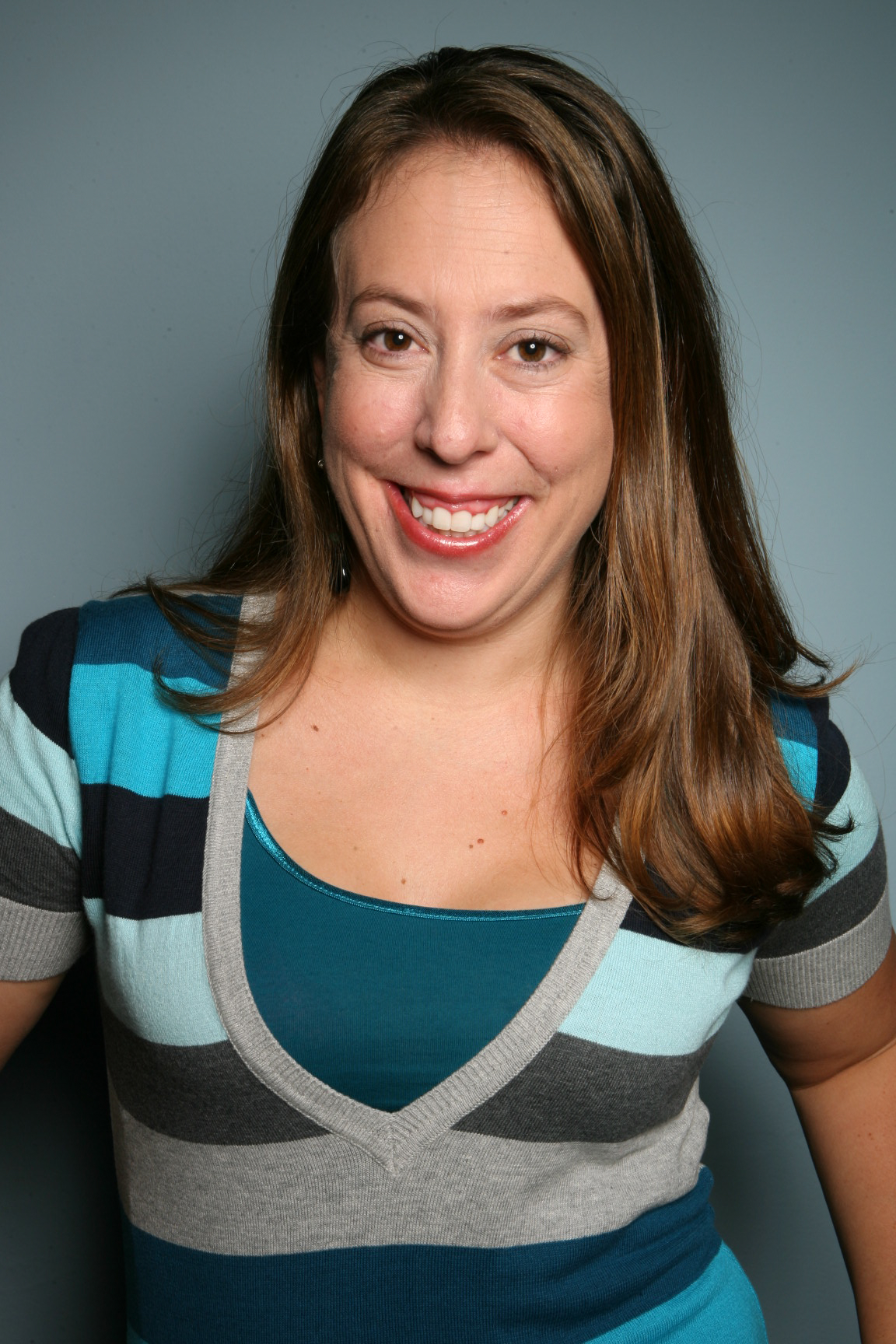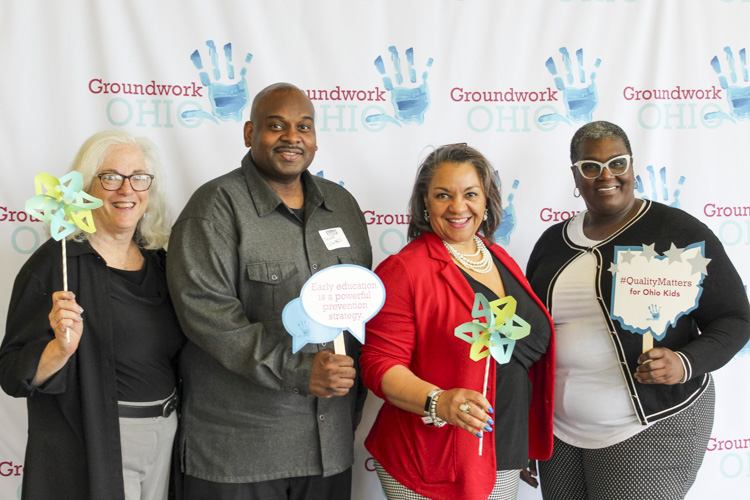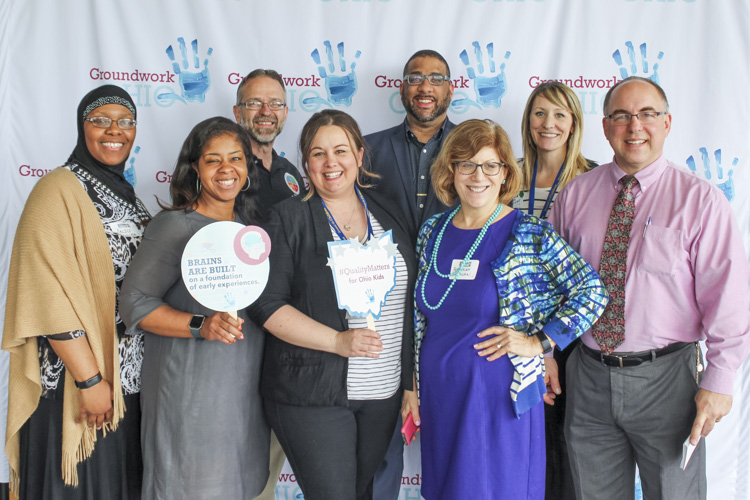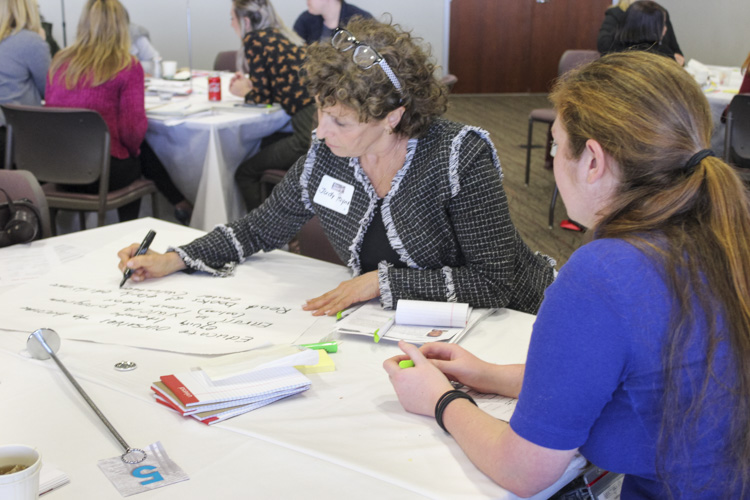Inside the Cuyahoga County Early Childhood Equity Forum—and why it matters so much
From its perch atop a hill in Shaker Square-Buckeye, the Benjamin Rose Institute for Aging boasts an expansive view of Cleveland and its skyline that makes it easy to feel like anything is possible—and that was exactly the vibe at the conclusion of the Early Childhood Equity Forum, held there last Friday, April 12.
Hosted by PRE4CLE, Groundwork Ohio, Starting Point, and Invest in Children, the event convened close to 100 educators, nonprofit leaders, and others with a stake in Cleveland’s early childhood education landscape to discuss not only the 2018 Groundwork Ohio report “From the Ground Up,” but also how to create new and different equitable outcomes based on its findings.
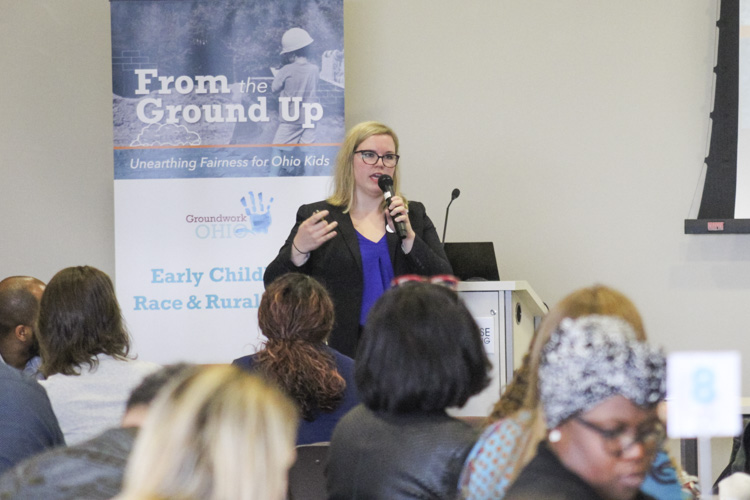 “We’re focused on having every child enter kindergarten ready to succeed,” says Michelle Connavino, Operations and Outreach Specialist for PRE4CLE. “What we saw in the Groundwork Ohio data was that that wasn’t happening equitably for children in Cleveland. This was something we already knew, but this was the first time we’d seen the data presented in this way.”
“We’re focused on having every child enter kindergarten ready to succeed,” says Michelle Connavino, Operations and Outreach Specialist for PRE4CLE. “What we saw in the Groundwork Ohio data was that that wasn’t happening equitably for children in Cleveland. This was something we already knew, but this was the first time we’d seen the data presented in this way.”
Among the report’s more striking findings: 61 percent of black children in the U.S. have experienced trauma through adverse childhood experiences (ACEs), and Ohio currently ranks 46th in the nation at supporting kids with three or more ACEs—putting them at higher risk for long-lasting negative effects. Additionally, here in Cuyahoga County, just 22 percent of black children and 19 percent of Hispanic children demonstrate kindergarten readiness (as opposed to 52 percent of white children locally).
“Kids who start behind often stay behind, and some kids get left behind more often than others,” said Lynanne Gutierrez, Policy Director and Legal Counsel for Groundwork Ohio, while presenting the report’s findings.
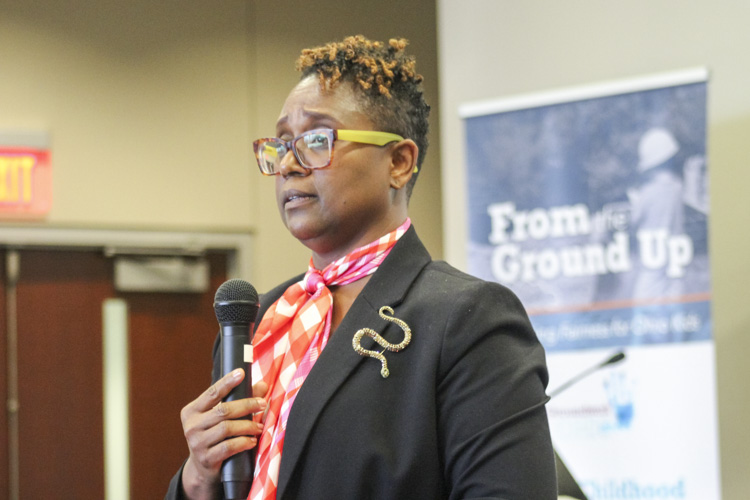 The Early Childhood Equity Forum was geared at starting conversations around shifting that reality. To that end, TransSpire LLC president Maureen Joseph came to Cleveland from New Orleans to facilitate the event and help add more context around the historic challenges that contribute to ongoing inequity via her presentation, “The Impact of Historical Trauma on Racial Disparities.”
The Early Childhood Equity Forum was geared at starting conversations around shifting that reality. To that end, TransSpire LLC president Maureen Joseph came to Cleveland from New Orleans to facilitate the event and help add more context around the historic challenges that contribute to ongoing inequity via her presentation, “The Impact of Historical Trauma on Racial Disparities.”
Joseph’s talk covered a wide berth of historical ground—from the country’s founding to slavery to segregation—designed to illustrate the deep roots of why inequity still exists on such a deep level today.
“I’m positive that what we’re not paying attention to is history and its impact on inequity,” Joseph shared. “Debating what diversity means, and who has power and who doesn’t, has been a conversation since the beginning. Because this has never been settled, that’s why we’re looking at disparity information like we have now.”
Joseph also explored themes of cultural identity, race, and the impact of whiteness as a culture and a construct. She likened the modern movement toward racial equity as a new dawning of Reconstruction. “We’re reconstructing who ‘we the people’ are,” she said.
PRE4CLE Executive Director Katie Kelly welcomed Joseph's insights and observations. “This is not an easy conversation, but it may be the most important issue that we can tackle to create better outcomes for Cleveland’s children,” said Kelly. “The data show that we have not closed the gap for children of color in our community, and we can’t keep doing the same things and expect that to change. We’re encouraged by the response to today’s event, especially the open and honest dialogue, thoughtful ideas, and optimism in the room related to working toward true change—in ourselves and in our community.”
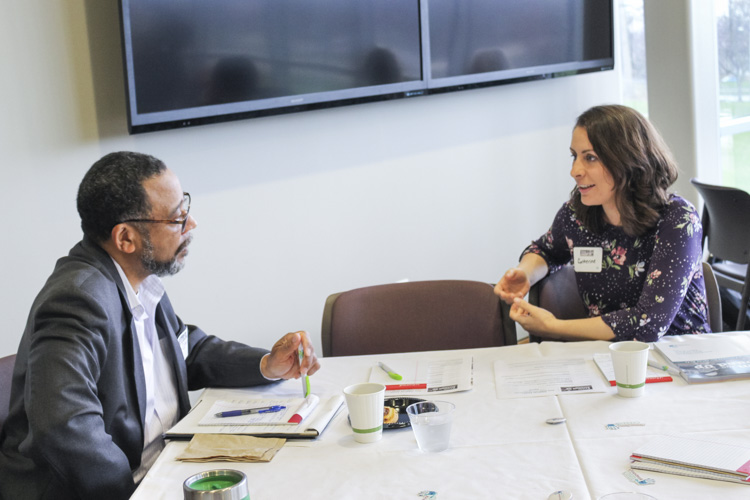
Along with her talk, Joseph also facilitated breakout conversations in which each table of attendees brainstormed ways to create more equity within their own organizations, classrooms, and daily lives. Ideas ranged from reimagining history curriculums in schools to providing trauma training for teachers to funding black-led nonprofits and businesses. After the brainstorming sessions, the ideas were displayed during a gallery walk where attendees could see and affirm the other tables’ suggestions.
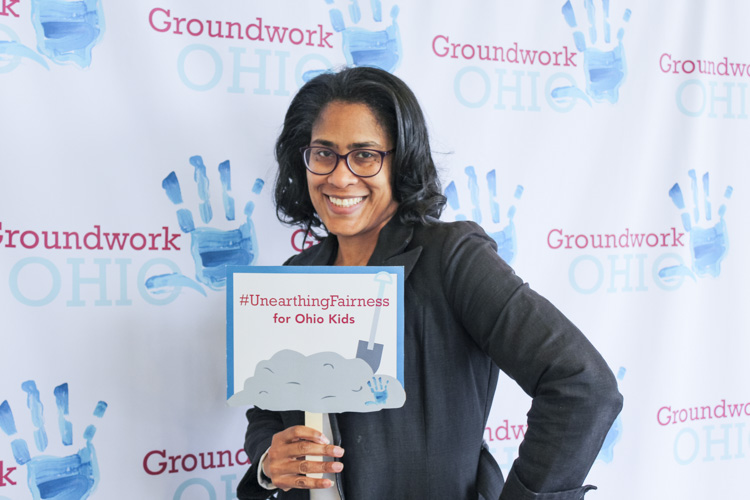 For attendee Charesha Barrett, the day was an important step forward in furthering the work she and other diversity and inclusion professionals do every day.
For attendee Charesha Barrett, the day was an important step forward in furthering the work she and other diversity and inclusion professionals do every day.
“Children in Solon versus children in Cleveland don’t have the same starting point—how can we ensure they have the same opportunities?” said Barrett, who runs Charp Education Consulting. “There are systems historically in place in order to prevent [non-white] individuals from excelling. People have to be willing to have crucial conversations about these tough issues so we can move our city forward.”
PRE4CLE’s Connavino agreed that all hands will be needed on deck to move the needle in creating more equity, saying that a “whole-systems approach” is necessary. “What are all of the different parts of early childhood systems–and other systems that touch early childhood—affecting these data? It’s important to think about this critically and [analyze] the different ways that systemic racism plays out in our community,” says Connavino. “It took hundreds of years to create these systems, and it will take a long time to break them down, but I think this is a really important step.”
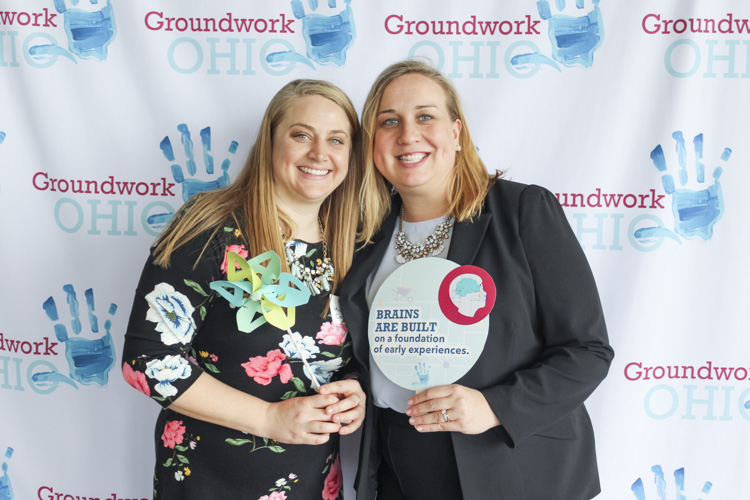 Another key part of moving forward will be to convince the state of Ohio to dedicate more funding to early childhood education, as the Groundwork Ohio report revealed that state spending on early childhood currently comprises only 6.3 percent of the education budget (as opposed to 93.7 percent for grades K-12).
Another key part of moving forward will be to convince the state of Ohio to dedicate more funding to early childhood education, as the Groundwork Ohio report revealed that state spending on early childhood currently comprises only 6.3 percent of the education budget (as opposed to 93.7 percent for grades K-12).
However, Invest in Children director Rebekah Dorman is encouraged by the fact that Cuyahoga County’s Universal Pre-Kindergarten model—considered a “gold standard” for preschool education—is helping to close the gap in terms of kindergarten readiness for children of all backgrounds.
“Last year, 61 percent of [Cleveland] children in UPK were African American,” said Dorman. “For those children who attend UPK, we are hopeful that the program is helping to achieve equity. Working with PRE4CLE, Groundwork Ohio, and Starting Point, we are striving to have enough resources and take UPK to scale so every child will have access. The work is not done, but the work has begun.”
PRE4CLE's Kelly closed the day by inviting attendees to stay tuned as PRE4CLE and its partners work to provide more opportunities for dialogue and action around equity for Cleveland’s young children: “We need to do this work today, so that hopefully 20 years from now we can look at this data and see that a child’s success was not determined by their skin color or their zip code. Only then will every child in Cleveland have a fair chance to succeed.”
To get more information about this effort and receive notices about future opportunities, please email Michelle Connavino at info@pre4cle.org. To read the full "From the Ground Up" report, click here.
